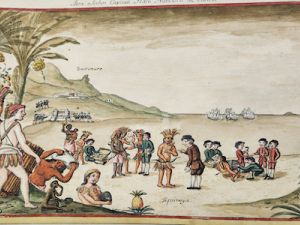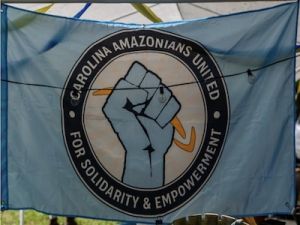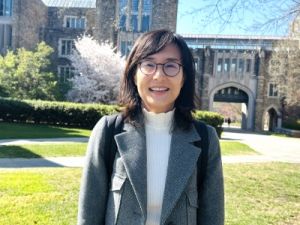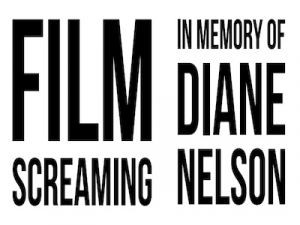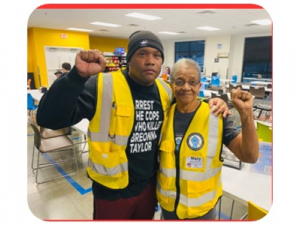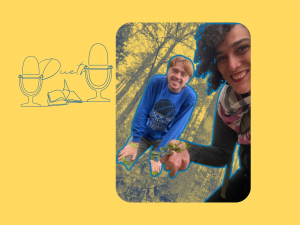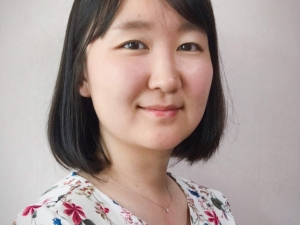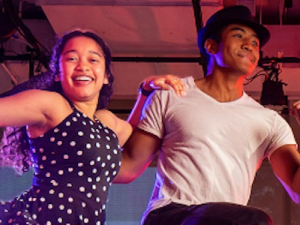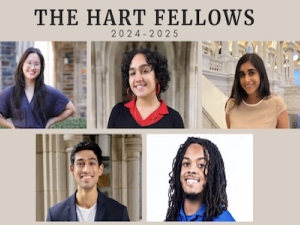Cultural Anthropology presentsMatthew RareyUnsettled Maps: Cartography and Afro-Atlantic Religions in Brazil’s Long Eighteenth CenturyMonday, February 24, 20251:30pmFriedl Building, Room 225In this talk, Matthew Francis Rarey meditates on the consistent, yet largely unexplored, intersections between early modern colonial cartography and the development of Afro-Atlantic religious practices in Brazil’s long eighteenth century. Looking to an amulet used in Brazil in 1744; a map of a maroon community from 1763; a Brazilian… read more about Unsettled Maps: Cartography and Afro-Atlantic Religions in Brazil’s Long Eighteenth Century »
Duke professor works undercover with NC workers pushing for first Amazon unionization in SouthFor two years, Professor of Cultural Anthropology Orin Starn worked undercover as an Amazon warehouse worker — most recently at RDU1 in Garner, N.C. — conducting ethnographic research to “see what it was really like” to work at the company’s facilities.Now, after two and a half years of organizing, workers and pro-union advocates at the warehouse have launched unionization efforts to secure better pay and improved… read more about Duke professor works undercover with NC Amazon workers. »
Former cultural anthropology PhD, June Hee Kwon, won a major book award for her first book, Borderland Dreams. Dr. Kwon is an associate professor at Sacramento State. The Francis H.K. Hsu Book Award committee takes great pleasure in awarding this year’s prize to Dr. June Hee Kwon’s monograph Borderland Dreams: The Transnational Lives of Korean Chinese Workers (Duke University Press). Kwon’s book richly weaves the multidirectional, multilayered, multivocal stories of Korean Chinese… read more about Ph.D alumna June Hee Kwon wins major book award for her first book. »
"I am the writing on the wall, the whisper in the classroom...come with me" - Candyman"Horror films may be good to think with, but they point beyond thinking" - Diane Nelson In loving memory of Diane Nelson, the Department of Cultural Anthropology is screening one of her favorite horror films - CANDYMAN (1992) - on Halloween Night. Rubenstein Arts Center Film Theater 2020 Campus Drive 7pm. The projection is a digital transfer of Diane's personal VHS copy - see what Diane watched as she… read more about Film Screaming: In Memory of Diane Nelson »
In the notoriously anti-union U.S. South, a Volkswagen plant unionized. After months of striking, unionized Hollywood writers won better pay and protections. These headline-grabbing wins belong to lists of 4,187 union elections and 809 organized strikes over the past two years.With about 70 percent approval, unions enjoy near-record high public support among those surveyed in the U.S. It seems a new era of labor activism is underway. Read more. read more about Inside Amazon’s Union-Busting Tactics »
For the first time ever, this fall semester Duke’s Trinity College of Arts & Sciences will offer an Indigenous United States language — Cherokee. The new course recognizes the intertwined history of Duke University and American Indian education. From 1882 to 1887, Trinity College, then in Randolph County, ran the federally funded Cherokee Industrial Indian Boarding School, enrolling 20 children of the Eastern Band of Cherokee Indians. The boarding school was closed in 1887, and Trinity moved to Durham a few years… read more about Duke to Offer New Cherokee Language Course Series »
Last month, scholars from across the United States, Haiti and Romania gathered on Duke’s campus to celebrate the career of Walter Mignolo, the William Hane Wannamaker Distinguished Professor of Romance Studies, Literature and Cultural Anthropology. During more than 30 years at Duke, Mignolo became a leading theorist of the connections between modernity and the colonial system. In over a dozen acclaimed books, including “The Darker Side of the Renaissance,” “Local Histories/Global Designs” and 2021’s “The Politics of… read more about Walter Mignolo Retires After 30 Years as Leading Theorist of Decoloniality »
In this interview, JHFC Spotlight sits down with Jieun Cho to explore what led her to continue at Duke University, delve into her current work, and discuss the joy she has found in the scenery around Durham. Tune in for an engaging discussion that offers a glimpse into her accomplishments. More here. read more about JHFC Spotlight: Jieun Cho, CulAnth PhD and APSI Postdoctoral Associate »
Five undergraduates find themselves in honors projects capping their Duke experience Undergraduate research is one of the signature elements of the student experience at Duke. More than half of the students graduate with either capstone independent study or honors projects of distinction. These provide students with opportunities to develop their research skills, take deep dives into intellectual questions and work closely with faculty outside of the classroom. Below are five examples of honors students and the projects… read more about When Curiosity Becomes Research: Jessica Sue-Kam-Ling-Lewis »
Each year, Duke University awards Benenson Awards in the Arts, which provide funding for arts-centered projects proposed by undergraduates, including graduating seniors. This year, the Student Arts Award Committee awarded prizes to fifteen students for creative projects spanning film, music, visual art, art and design, theater and creative writing. Congratulations to Huiyin Zhou! read more about Huiyin Zhou Among Fifteen Students to Receive a 2024 Benenson Award in the Arts! »
GRADUATION AWARD WINNERS Judith McDade Prize in Cultural Anthropology Awarded to the graduating seniors majoring in cultural anthropology judged to have the most distinguished record in the major. Sabrina Sebastian-San Miguel Sabrina E. Sebastian-San Miguel represents the very best of combining medical anthropology, science and technology studies (STS), and disability studies—a burgeoning intersection in which Sabrina’s thesis and class work makes an important… read more about Congratulations to our 2024 Graduation Award Winners »
Five seniors have been awarded the Hart Fellowship for 2024-2025, a prestigious postgraduate fellowship for recent Duke graduates, offered by the Hart Leadership Program in the Sanford School of Public Policy. After graduation, the new Hart Fellows will travel across the United States and the globe to engage in ten months of community-based research, forming deep connections in a community outside their own and partnering with a local host organization to conduct meaningful research on social, political… read more about CA Majors Ashley Bae and Corali Francisco-Zelkine among five awarded 2024-2025 Hart Fellowships »
What is a valuable body? In her “Bodies at Work” class, Emily Lim Rogers showed students that the answer depends very much on whom, where and when you ask. By taking them on a voyage in time and space, the Assistant Professor of Cultural Anthropology invited students to challenge the modern idea that productivity is inevitably tied to ableness. Embedded in a system where productivity is often imposed on them from an early age, but challenged by their own disabilities — or empathetic to those around… read more about Louder Than Words: Student Art Projects Redefine Valuable Bodies »
What is a valuable body? In her “Bodies at Work” class, Emily Lim Rogers showed students that the answer depends very much on whom, where and when you ask. By taking them on a voyage in time and space, the Assistant Professor of Cultural Anthropology invited students to challenge the modern idea that productivity is inevitably tied to ableness. Embedded in a system where productivity is often imposed on them from an early age, but challenged by their own disabilities — or empathetic to those around them — students craved… read more about Louder Than Words: Student Art Projects Redefine Valuable Bodies »
Nick Saban’s departure from Alabama shocked me as a football fan. But as an anthropologist and ethnographer, I was more concerned with what the news meant for the players. Only a few days after the 2024 College Football Playoff National Championship game, head coach Nick Saban announced his retirement from his post at the University of Alabama. Saban’s successor was announced the next day when the public learned University of Washington’s Kalen DeBoer, fresh off a loss in the national title game, would lead the… read more about The myth of the college football family has nothing to do with love. »


